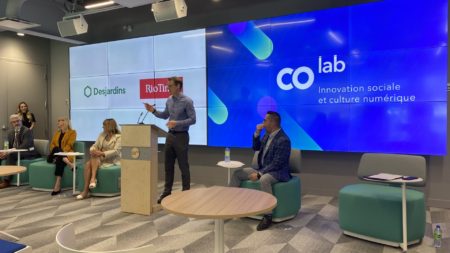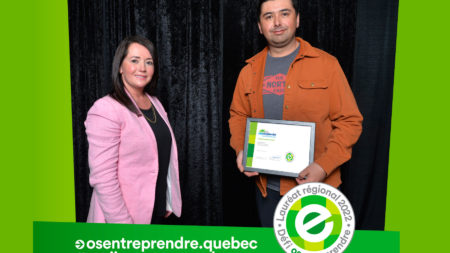Rio Tinto Proud to Continue its Collaboration with COlab

From the outset, Rio Tinto has been involved with COlab—a research and innovation centre—providing both funding and support. As a non-profit organisation dedicated to increasing the digital skills of individuals, businesses and communities, COlab aligns with Rio Tinto’s socio-economic development mission.
As soon as the COlab teams expressed their need for private investment and support, Rio Tinto jumped at the chance to get involved. COlab’s mission is perfectly in line with one of Rio Tinto’s four Regional Economic Development (RED) investment areas: the digital shift.
“We made a first contribution of $300,000, and we have just signed a second one,” said Emmanuel Bergeron, Director, Regional Economic Development at Rio Tinto. “We also share our expertise and participate in activities to help implement innovative projects in the region. We are very proud of this.”
Strong female leadership
When asked about the many reasons why Rio Tinto is proud of its involvement with COlab, Emmanuel Bergeron mentioned the non-profit’s strong female leadership. “Bringing together such a competent, diverse team is impressive,” he said.
Rio Tinto also supports the Astucieuses, a local postsecondary program for women studying computer science, engineering, mathematics (STEM) and anything related to digital technology.
“Rio Tinto has been involved in the Astucieuses program for over two years now. The team is there during visits, and they participate in activities. They provide us with financial support, as well as expertise. We are very grateful because the program helps train more women entrepreneurs in STEM in the region and across Quebec,” said Ms. Gauthier.
Social innovation and digital culture
The COlab research and innovation centre—created as part of Collège d’Alma’s strategic planning—marks its fourth year in operation. Josée Gauthier, the non-profit’s general manager, explained that the agreement signed with Rio Tinto benefits the centre in several ways. Among them is the development of labs that use digital technologies for educational innovation.
While some labs are used to develop digital appropriation activities for the community, entrepreneurs and students wishing to prototype new products or services, they are all sources of inspiration.
“Rio Tinto’s people helped us develop our project, believe in it, and bring it to life. They’ve been there since the very start. They saw the potential of digital technology, for businesses and the community at large, and the impact that our organisation could have in the region,” said Ms. Gauthier.


